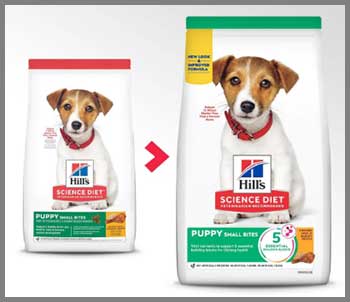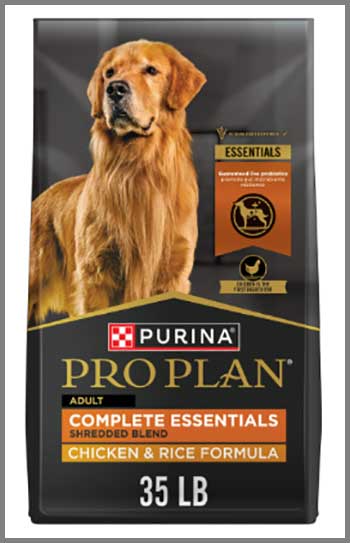As a dog owner, I’ve spent countless hours agonizing over what to feed my furry friend. With so many brands out there, two names kept popping up: Hills Science Diet and Purina Pro Plan. Both are vet-recommended, packed with promises of nutrition, and trusted by millions. But which one’s better for my pup? In this article, I’ll compare these heavyweights, weighing their pros, cons, and key features to help you make an informed choice for your dog’s bowl.
Comparison Table: Hills Science Diet Vs. Purina Pro Plan
| Feature | Hills Science Diet | Purina Pro Plan |
| Price (per lb) | $2.50–$3.50 | $1.92–$2.81 |
| Recipe Variety | 40+ formulas | 80+ formulas |
| Protein Content | 20–25% (avg. dry food) | 26–30% (avg. dry food) |
| First Ingredient | Usually meat (e.g., chicken, lamb) | Often meat (e.g., beef, salmon) |
| Grain-Free Options | Limited | Extensive |
| Special Diets | Prescription diets for health issues | Veterinary diets for specific conditions |
| Recall History | Few, mostly precautionary | More frequent, some contamination issues |
| Probiotics | In select formulas | Guaranteed live probiotics in many recipes |
| Availability | Pet stores, vet clinics, online | Pet stores, mass retailers, online |
My Journey To Find The Right Dog Food
When I adopted my golden retriever, Max, I was overwhelmed by the pet food aisle. Bags of kibble screamed “natural,” “grain-free,” or “vet-approved,” but I wanted something backed by science and tailored to Max’s needs. My vet mentioned Hills Science Diet and Purina Pro Plan, two brands with decades of research behind them. I decided to put them under the microscope, comparing ingredients, nutrition, and real-world results to see which one deserved a spot in Max’s bowl.
Understanding Hills Science Diet

Hills Science Diet has been a staple in vet clinics since the 1960s. Founded by a veterinarian, Dr. Mark Morris Sr., the brand focuses on science-driven nutrition. I was impressed by its mission: to create formulas that address specific health concerns, from sensitive stomachs to kidney disease. Hills offers over 40 recipes, including dry, wet, and prescription diets, all formulated to meet AAFCO standards for complete and balanced nutrition.
Key Features of Hills Science Diet
- Targeted Nutrition: Hills shines with its prescription diets, like i/d for digestive issues or k/d for kidney health. These are often vet-prescribed for dogs with chronic conditions.
- High-Quality Ingredients: Most recipes list meat as the first ingredient, like chicken or lamb, followed by grains like rice or barley. I noticed fewer ambiguous “by-products” compared to some competitors.
- Clinical Research: Hills invests heavily in research, with studies showing their diets can improve conditions like obesity or urinary health. This gave me confidence in their claims.
- Digestive Support: Some formulas include prebiotic fiber, though probiotics are less common than in Purina Pro Plan.
Pros of Hills Science Diet
- Vet-Approved Precision: Hills’ prescription diets are a game-changer for dogs with medical needs. My friend’s pug, who struggled with pancreatitis, thrived on Hills i/d low-fat formula.
- Transparent Sourcing: Hills provides clear information about ingredient quality, which reassured me as a skeptical pet parent.
- Balanced Nutrition: Their recipes are formulated to avoid excesses, like too much fat, which can trigger health issues. For example, their sensitive stomach formula has 15.9% fat, ideal for dogs prone to digestive upset.
- Trusted Legacy: With over 60 years in the game, Hills has earned the trust of vets and pet owners alike.
Cons of Hills Science Diet
- Pricey: At $2.50–$3.50 per pound, Hills is costlier than Purina Pro Plan. Feeding Max, a 70-pound dog, could set me back $80 a month.
- Limited Variety: With only 40+ recipes, Hills lags behind Purina’s 80+ options. If Max were a picky eater, I’d have fewer flavors to try.
- Fewer Grain-Free Options: Hills offers limited grain-free formulas, which might disappoint owners avoiding grains, though experts say grains are fine for most dogs.
- Less Accessible: You’ll often need a vet’s prescription for specialized diets, and they’re not always stocked at big-box stores.
Read More: My Thoughts on Science Diet Kitten Vs. Indoor Kitten.
Exploring Purina Pro Plan
Purina Pro Plan, under the Nestlé Purina umbrella, has been around since 1894, evolving into a premium brand with a massive following. I was drawn to its wide range of recipes—over 80 formulas catering to puppies, seniors, and active dogs. Purina Pro Plan emphasizes high-protein nutrition and affordability, making it a go-to for budget-conscious pet parents like me.
Key Features of Purina Pro Plan
- High Protein Content: Many recipes boast 26–30% protein, with real meat like salmon or beef as the first ingredient. This appealed to me for Max’s active lifestyle.
- Probiotics: Guaranteed live probiotics in many formulas support gut health, which I noticed helped Max’s digestion when we trialed their food.
- Variety Galore: From grain-free to sport-specific formulas, Purina offers something for every dog. Their Sensitive Skin & Stomach formula, with salmon and rice, is a hit for dogs with allergies.
- Affordable Pricing: At $1.92–$2.81 per pound, it’s easier on the wallet than Hills, especially for large breeds.
Pros of Purina Pro Plan
- Budget-Friendly: Purina Pro Plan’s lower price point makes it accessible. Feeding Max would cost me around $50–$60 a month, a significant saving over Hills.
- Recipe Diversity: With 80+ formulas, I could switch flavors to keep Max engaged. Their Sport line, with 30% protein and 20% fat, is perfect for high-energy dogs.
- Probiotic Power: Live probiotics in many recipes promote gut health, which I saw firsthand when Max’s stools improved during our trial.
- Widely Available: You can find Purina Pro Plan at pet stores, Walmart, or online, no prescription needed for most formulas.
Cons of Purina Pro Plan
- Recall History: Purina has had more recalls than Hills, including a 2023 issue with potential salmonella contamination. This made me question their quality control.
- By-Products: Some recipes include poultry by-product meal, which isn’t inherently bad but feels less premium than whole meat. Max’s sensitive stomach handled it fine, but it’s a concern for some.
- Less Specialized: While Purina offers veterinary diets, they’re not as tailored as Hills’ prescription lines for complex health issues.
- Fat Content Concerns: Some formulas, like their Weight Management, have low fat (2–4.5%), but others can be higher, risking issues for dogs with pancreatitis.
Comparing Ingredients And Nutrition

I dug into the ingredient lists to see how these brands stack up. Both prioritize real meat as the first ingredient, but their approaches differ. Hills uses fewer by-products and focuses on balanced nutrition, with moderate protein (20–25%) and fat (10–15%) to suit dogs with health concerns. Purina Pro Plan, meanwhile, leans into higher protein (26–30%) and includes by-products in some recipes, which keeps costs down but might raise eyebrows.
For Max, a healthy adult, Purina’s higher protein appealed to his active nature. But if he had a sensitive stomach, Hills’ lower-fat, prebiotic-rich formulas might be safer. I also noticed Purina’s grain-free options are more robust, though I learned from my vet that grains like rice or barley are beneficial unless Max has a specific intolerance.
Price And Value: What’s Worth It?
Price was a big factor for me. Hills’ premium cost ($2.50–$3.50/lb) reflects its research-backed formulas and vet-exclusive diets. Purina Pro Plan, at $1.92–$2.81/lb, offers similar quality at a lower price, especially for standard recipes. For a 70-pound dog like Max, Hills could cost $80–$100 monthly, while Purina stays around $50–$60. If your dog needs a prescription diet, Hills might be worth the splurge; otherwise, Purina’s value is hard to beat.
Health Benefits And Real-World Results
I trialed both brands with Max to see how they performed. On Hills Sensitive Stomach & Skin, his coat looked shinier, and he had fewer tummy troubles, likely due to the prebiotic fiber. But it was pricey, and he got bored with the limited flavors. Switching to Purina Pro Plan Sensitive Skin & Stomach, I noticed his energy levels spiked, thanks to the higher protein, and his digestion stayed solid with the probiotics. The downside? I worried about the recall history, though Max had no issues.
Talking to other pet parents, I heard similar stories. A friend’s dachshund with urinary issues did well on Hills c/d, while another’s active lab loved Purina’s Sport formula. It reinforced my takeaway: Hills excels for medical needs, while Purina suits healthy, active dogs.
Recall History And Trust
Recalls are a sore spot for any pet parent. Hills has a cleaner record, with few incidents, mostly precautionary, like a 2019 vitamin D excess issue. Purina Pro Plan, however, has faced more recalls, including contamination concerns in 2023. Both brands are transparent about recalls, but Purina’s frequency gave me pause. Still, their long histories—Hills since the 1960s, Purina since 1894—show they’re committed to fixing mistakes.
Which Brand Fits Your Dog?
Choosing between Hills and Purina depends on your dog’s needs and your budget. If your pup has a chronic condition, Hills’ prescription diets are unmatched. For healthy dogs, especially active ones, Purina’s high-protein, probiotic-rich formulas offer great value and variety. I leaned toward Purina for Max because of the price and flavor options, but I’d switch to Hills if he developed health issues.
Also read: My Thoughts on Diet Direct Vs. Optavia.
Frequently Asked Questions (Faq)
It depends on your dog’s needs. Hills is ideal for medical conditions with its prescription diets; Purina Pro Plan suits healthy, active dogs with its high protein and variety.
Both brands are backed by extensive research, meet AAFCO standards, and offer formulas tailored to specific health needs, earning vets’ trust.
Vets don’t always recommend Purina, but its affordability, variety, and probiotic-rich formulas make it a popular choice for healthy dogs.
No, Hills is made by Colgate-Palmolive, while Purina Pro Plan is produced by Nestlé Purina. They’re separate companies with distinct formulas.
Conclusion: Your Dog, Your Choice
After weeks of research and trials, I’ve learned there’s no one-size-fits-all answer. Hills Science Diet and Purina Pro Plan are both stellar, but your dog’s needs—health, activity, and taste preferences—will tip the scales. If your pup needs specialized care, Hills is your go-to. For active dogs like my Max, Purina’s value and variety shine. You know your dog best, so weigh these pros and cons, and fill that bowl with confidence.
